- Clone
- A12 (7D4) (See other available formats)
- Regulatory Status
- RUO
- Other Names
- SLAM, Signaling Lymphocyte Activation Molecule, IPO-3
- Isotype
- Mouse IgG1, κ
- Ave. Rating
- Submit a Review
- Product Citations
- publications
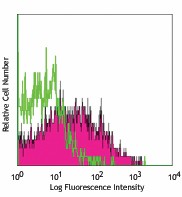
-

Human peripheral blood lymphocytes stained with purified A12, followed by biotinylated anti-mouse IgG and Sav-PE
| Cat # | Size | Price | Quantity Check Availability | Save | ||
|---|---|---|---|---|---|---|
| 306302 | 100 µg | $101 | ||||
CD150 is a 70-95 kD type I transmembrane glycoprotein also known as SLAM or IPO-3. It is a member of the Ig superfamily. It is expressed on a subset of T cells, B cells, dendritic cells, and endothelial cells. The expression of CD150 is upregulated upon activation. CD150 binds to itself as the ligand to be involved in B cell costimulation, proliferation, immunoglobulin production, and signal transduction.
Product DetailsProduct Details
- Verified Reactivity
- Human, Cynomolgus, Rhesus
- Reported Reactivity
- African Green, Baboon
- Antibody Type
- Monoclonal
- Host Species
- Mouse
- Immunogen
- Activated human PBMC
- Formulation
- Phosphate-buffered solution, pH 7.2, containing 0.09% sodium azide.
- Preparation
- The antibody was purified by affinity chromatography.
- Concentration
- 0.5 mg/ml
- Storage & Handling
- The antibody solution should be stored undiluted between 2°C and 8°C.
- Application
-
FC - Quality tested
IHC-F, Costim, IP - Reported in the literature, not verified in house - Recommended Usage
-
Each lot of this antibody is quality control tested by immunofluorescent staining with flow cytometric analysis. For flow cytometric staining, the suggested use of this reagent is ≤ 0.5 µg per 106 cells in 100 µl volume or 100 µl of whole blood. It is recommended that the reagent be titrated for optimal performance for each application.
- Application Notes
-
Additional reported applications (for the relevant formats) include: immunohistochemical staining of acetone-fixed frozen tissue sections, immunoprecipitation4, and costimulation1,5 of IFN-gamma production and T cell proliferation. The Ultra-LEAF™ purified antibody (Endotoxin <0.01 EU/µg, Azide-Free, 0.2 µm filtered) is recommended for functional assays (Cat. No. 306317 and 306318).
-
Application References
(PubMed link indicates BioLegend citation) -
- Garcia V, et al. 2001. J. Immunol. 167:5719. (Costim)
- Vincent S, et al. 2002. J. Virol. 76:6121.
- Cocks B, et al. 1995. Nature 376:260.
- Sayos J, et al. 2001. Blood 97:3867. (IP)
- Aversa G, et al. 1997. J. Immunol. 158:4036. (Costim)
- Spencer M, et al. 2010. Am. J. Physiol Endocrinol Metab. 299:1016. PubMed
- Product Citations
-
- RRID
-
AB_314590 (BioLegend Cat. No. 306302)
Antigen Details
- Structure
- Ig superfamily, type I transmembrane glycoprotein, 70-95 kD
- Distribution
-
T subset (upregulated after activation), B cells, dendritic cells, endothelial cells
- Function
- B cell costimulation, proliferation and Ig production
- Ligand/Receptor
- CD150 (self ligand)
- Cell Type
- B cells, Dendritic cells, Endothelial cells, T cells, Tregs
- Biology Area
- Costimulatory Molecules, Immunology, Innate Immunity
- Molecular Family
- Adhesion Molecules, CD Molecules
- Antigen References
-
1. Cocks B, et al. 1995. Nature 376:260.
2. Pinchouk V, et al. 1988. AntiCancer Res. 8:1377.
3. Polacino P, et al. 1996. J. Med. Primatol. 25:201.
4. Punnonen J, et al. 1997. J. Exp. Med. 185:993. - Gene ID
- 6504 View all products for this Gene ID
- UniProt
- View information about CD150 on UniProt.org
Related FAQs
Other Formats
View All CD150 Reagents Request Custom Conjugation| Description | Clone | Applications |
|---|---|---|
| FITC anti-human CD150 (SLAM) | A12 (7D4) | FC |
| PE anti-human CD150 (SLAM) | A12 (7D4) | FC |
| Purified anti-human CD150 (SLAM) | A12 (7D4) | FC,IHC-F,Costim,IP |
| Alexa Fluor® 488 anti-human CD150 (SLAM) | A12 (7D4) | FC |
| TotalSeq™-A0870 anti-human CD150 (SLAM) | A12 (7D4) | PG |
| TotalSeq™-C0870 anti-human CD150 (SLAM) | A12 (7D4) | PG |
| Ultra-LEAF™ Purified anti-human CD150 (SLAM) | A12 (7D4) | FC |
| TotalSeq™-B0870 anti-human CD150 (SLAM) Antibody | A12 (7D4) | PG |
| TotalSeq™-D0870 anti-human CD150 (SLAM) | A12 (7D4) | PG |
Customers Also Purchased
Compare Data Across All Formats
This data display is provided for general comparisons between formats.
Your actual data may vary due to variations in samples, target cells, instruments and their settings, staining conditions, and other factors.
If you need assistance with selecting the best format contact our expert technical support team.
-
FITC anti-human CD150 (SLAM)
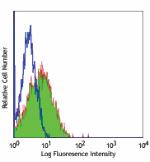
Human peripheral blood lymphocytes stained with A12 FITC -
PE anti-human CD150 (SLAM)
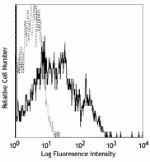
Human peripheral blood lymphocytes stained with A12 PE -
Purified anti-human CD150 (SLAM)
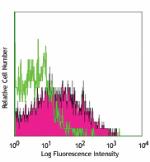
Human peripheral blood lymphocytes stained with purified A12... -
Alexa Fluor® 488 anti-human CD150 (SLAM)
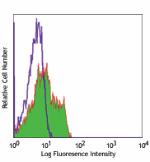
Human peripheral blood lymphocytes stained with A12 Alexa Fl... -
TotalSeq™-A0870 anti-human CD150 (SLAM)
-
TotalSeq™-C0870 anti-human CD150 (SLAM)
-
Ultra-LEAF™ Purified anti-human CD150 (SLAM)
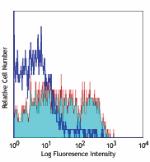
Human peripheral blood lymphocytes Ultra-LEAF™ purified A12,... -
TotalSeq™-B0870 anti-human CD150 (SLAM) Antibody
-
TotalSeq™-D0870 anti-human CD150 (SLAM)
 Login/Register
Login/Register 







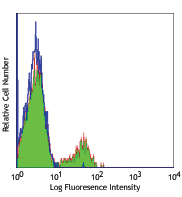




Follow Us